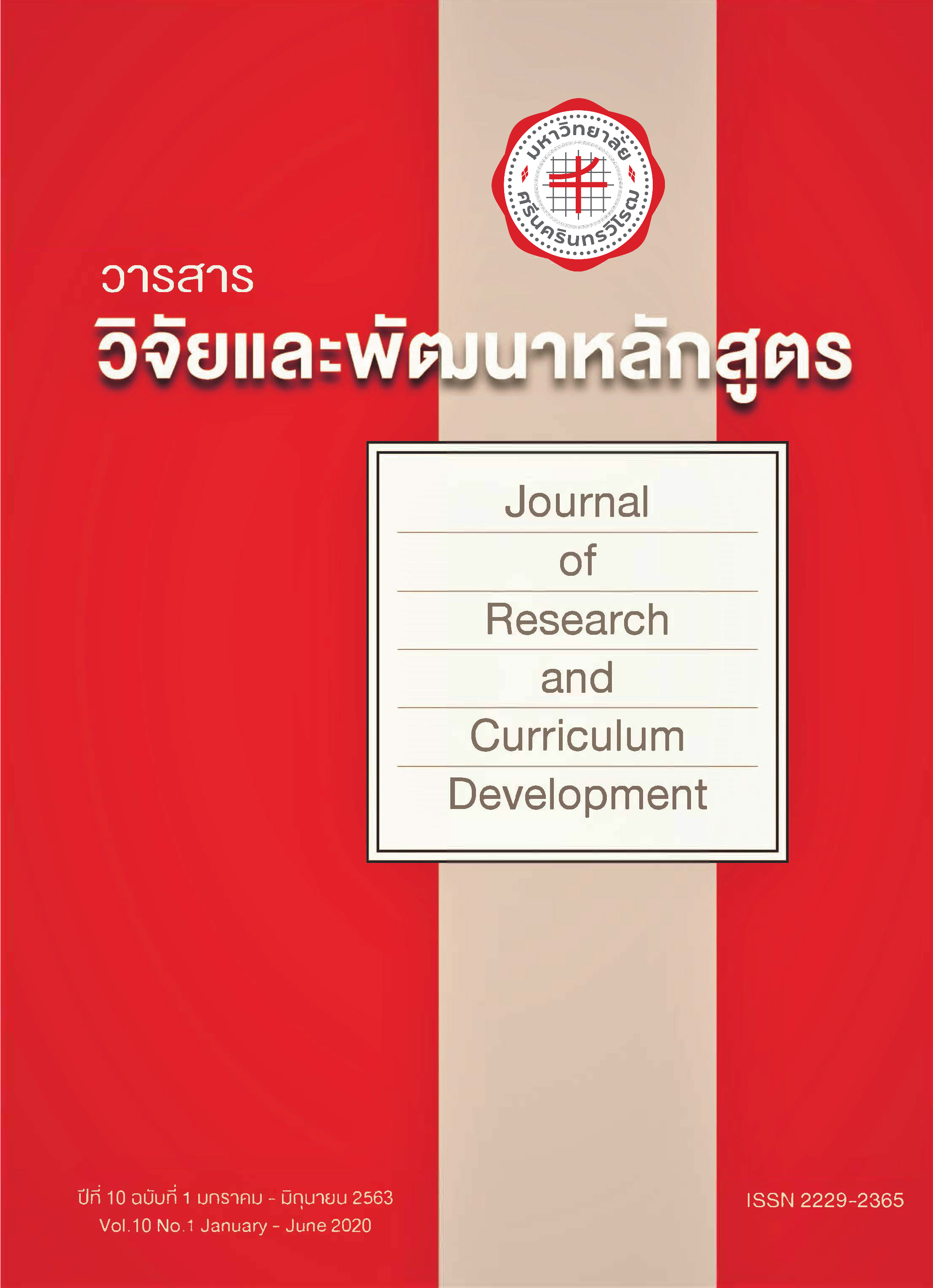การพัฒนากระบวนทัศน์ รูปแบบและกลไกการพัฒนาครูตามแนวคิดเครือข่ายเชิงพื้นที่ : กรณีศึกษาพื้นที่ภาคกลาง รวมภาคตะวันออกและภาคตะวันตก พร้อมข้อเสนอเชิงนโยบายรูปแบบและกลไกการพัฒนาครูตามแนวคิดเครือข่ายเชิงพื้นที่ ภาคกลาง รวมภาคตะวันออกและภาคตะวันตก
Keywords:
Paradigms Models and Mechanisms for Teacher Development, Area Networks, Policy proposalsAbstract
The objectives of this research were to 1) study the current conditions and desirable conditions of teacher development, 2) develop paradigm a model and mechanism for teacher development that was in line with the needs of school and 3) making policy proposals, paradigm format and mechanism for teacher development. The informants are school administrators and the teachers institute produced 32 teachers and 408 educational institutions. The instruments used in this study were data collection form for the teacher and educational institutions, questionnaire for teachers and educational institutions, discussion issues for administrators and faculty, teachers and educational institutions. The data were analyzed by using frequency, percentage, mean, standard deviation (S.D.), content analysis and needs. The results of research found that 1) In general, according to the viewpoint from the teacher production institute, paradigm and in the form of teacher development. The current condition was at a high level. The teacher development mechanism was at a moderate level and all 3 aspects were at a high level. And according to the point of view from the school, found that all 3 aspects were in current condition and the desirable conditions were at a high level. 2) The results of the development of paradigm a model and mechanism for teacher development showed that paradigm emphasizing the results of the learners as a model for learning by doing research with the university. Developed through online mechanisms, using mechanisms for cooperation and support of tripartite networks. 3) Policy proposals the paradigm of teacher development should be adjusted to reflect the needs of the development recipients, focusing on the outcomes of the students. Meet the needs of individual teachers. Applied information technology and build a cooperative network in the area.
References
สำนักงานเลขาธิการสภาการศึกษา. (2561). มาตรฐานการศึกษาของชาติ พ.ศ. 2561. กรุงเทพฯ: สำนักงานเลขาธิการสภาการศึกษา.
สำนักงานเลขาธิการสภาการศึกษา. (2562). การพัฒนากระบวนทัศน์ รูปแบบและกลไกการพัฒนาครู ในลักษณะเครือข่ายเชิงพื้นที่ 5 พื้นที่. กรุงเทพฯ: สำนักงานเลขาธิการสภาการศึกษา.
Creswell, J. W. (2013). Research Design: Qualitative, Quantitative, and Mixed Methods Approaches. (2nd ed.). Thousand Oaks, CA: Sage Publications.
Organization for Economic Co-operation and Development (OECD). (2009). Creating
Effective Teaching and Learning Environments: First results from TALIS. Paris:
Organization for Economic Co-operation and Development.
Timperley, H., Wilson, A., Barrar, H., & Fung, I. (2008). Teacher Professional Learning and
Development.





